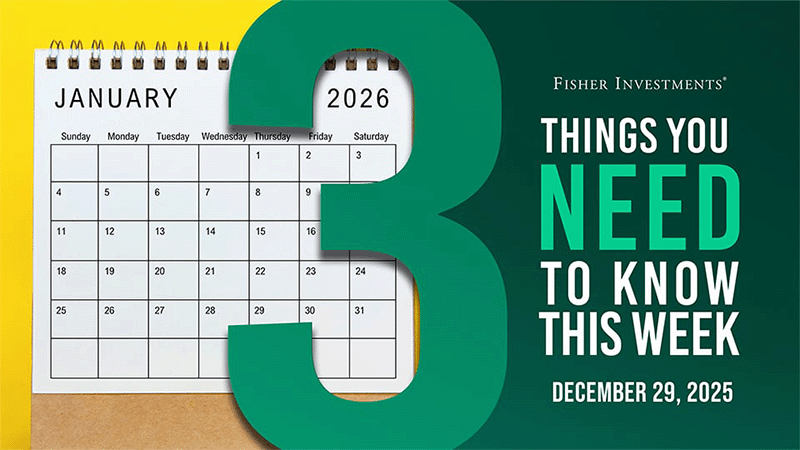Personal Wealth Management / Politics
This Month in Global Elections
Political uncertainty should continue to fall as Austrians and Japanese head to the polls.
Entering 2017, most everyone figured the global election circus would be over by now, as September's German election was the last major contest on the docket. But politicians had other ideas, as Austria and Japan decided to get in on the fun. First Austria called a snap election after its centrist coalition government collapsed in May. Japanese PM Shinzo Abe followed suit last month in a bid to strengthen his hand. While both perhaps stir uncertainty in the short term, neither should upend this year of falling political uncertainty. Rather, they give investors a couple more opportunities to gain clarity and shift focus to the world's strong economic fundamentals.
Austria: The Adventures of Wunderwuzzi
The center-right People's Party (OVP) leads polls ahead of Sunday's contest, followed by the far-right Freedom Party (FPO) and center-left Social Democratic Party (SPO) in third, teeing up the prospect of the OVP's 31-year-old hot shot leader, Sebastian Kurz (aka Wunderwuzzi), becoming the next prime minister. But as with most continental European elections, no party is likely to win an outright majority, forcing the eventual winner to cobble together a coalition.
While the SPO and OVP partnered in the last government, this time, there are rumblings of a coalition between OVP and FPO, whose presidential candidate, euroskeptic Norbert Hofer, narrowly lost last year's election. Between Hofer's notoriety and FPO's past consideration of a referendum on EU membership, the possible coalition has some on edge. But perhaps sensing a shift in political winds, FPO softened its view and is now committed to EU membership. And with pro-EU OVP as FPO's only realistic coalition partner, the potential for euroskeptic leadership has declined. Moreover, current polls may not reflect the final vote-as the US Presidential election and Brexit vote showed last year.
Whatever the outcome, coalition governments generally mean gridlock, and just knowing the outcome should help investors move on, much as they did after the Dutch and French elections earlier this year. Already, it's notable how much Austrian euroskepticism has fizzled, similar to much of the rest of continental Europe. What a big difference a year has made.
Japan: Abe-San and the Lipstick Ninja
In what amounts to a political gambit for Abe, Japanese voters head to the polls one week later. Officially, it is a referendum on his plans for the proceeds of 2019's scheduled sales tax hike. Parliament initially passed the increase as a deficit reduction measure, but Abe has since changed his tune and wants to use the proceeds to fund education and child care. Abe says voters should approve such a large shift from an original mandate, hence the election. But the timing also seems a bit, well, convenient. His approval ratings were plagued by scandals early in the year, but they have rebounded lately as tensions flared with North Korea and the people rallied around his strong stance.
While his party-the Liberal Democratic Party (LDP)-leads in the polls, political winds can shift quickly. Just ask UK PM Theresa May, who called a snap vote when her numbers were up earlier this year. She expected to increase her majority only to find her party losing seats in parliament and having to form a minority government. This is Abe's third election this go-round,[i]but it is the first where he faces a credible opposition: the newly formed Party of Hope, which burst onto the scene with its founder Yuriko Koike (formerly one of the celebrated "Lipstick Ninjas" in Abe's cabinet) being elected mayor of Tokyo. The new party merged with the floundering Democratic Party of Japan (DPJ), traditionally the LDP's primary opposition. While Koike has decided not to run, the Party of Hope is polling second, and a large share of the country's many undecided voters could take a last minute turn toward them in order to check the LDP's power. That may not be enough to steal the LDP/Komeito coalition's majority, but it could dent hopes for them to retain enough seats to pass a constitutional amendment.
Whether or not LDP and Komeito emerge with two-thirds of the seats-or Party of Hope pulls off a ginormous upset-the pace of reforms seems unlikely to change. Even with his coalition's current supermajority, Abe has struggled to pass major reform. His government managed to cut corporate taxes, but that was low-hanging fruit. Labor markets and other deep-seated structural issues remain untouched. Even Abe's sales tax hike has been twice delayed. Originally planned to take effect in 2015, it now isn't set to take effect until October 2019. But at this point, investors long ago accepted Japan's lack of reform. Far from being a catalyst for change or Japanese outperformance, we view the election as just one more distraction for global markets to get past.
[i] Lest we forget, he served as PM back in 2006-2007, which is why we affectionately call him Japan's Grover Cleveland.
If you would like to contact the editors responsible for this article, please message MarketMinder directly.
*The content contained in this article represents only the opinions and viewpoints of the Fisher Investments editorial staff.
Get a weekly roundup of our market insights
Sign up for our weekly e-mail newsletter.

You Imagine Your Future. We Help You Get There.
Are you ready to start your journey to a better financial future?

Where Might the Market Go Next?
Confidently tackle the market’s ups and downs with independent research and analysis that tells you where we think stocks are headed—and why.





